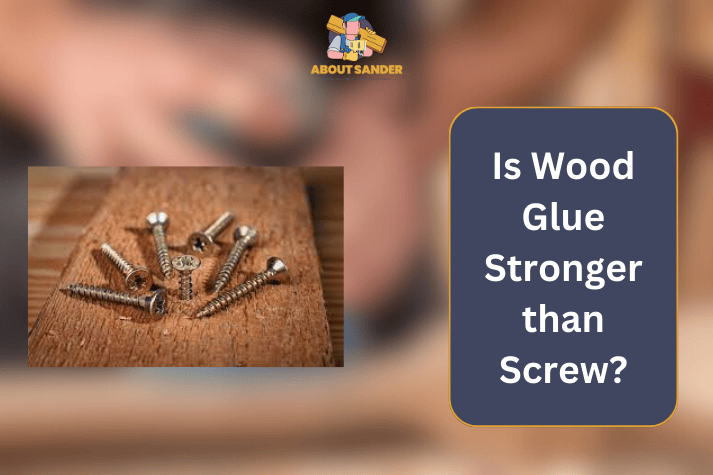Do you love wood-crafting, and there are situations when you question yourself, is wood glue stronger than screw? Or how to build furniture without screws? Then this article is for you.
Wood crafting is an ancient technique used to make things out of wood. Initially, wood nuts were used for fixing the pieces of wood together. Later on, special iron or steel screws replaced these wooden nuts, and now, in the present era, advanced technologies have led to the formation of high-quality glues and resins.
So, now the people had to choose between glue and screws. This question is often asked which one is stronger, either wood glue or screw? Without a doubt, we can say that is wood glue stronger than screw.
Wood glue attaches the joints of wood more firmly than screws as screws fix the joints together only at specific areas, whereas glue sticks the whole surface area of two wood pieces together.
Key Takeaways
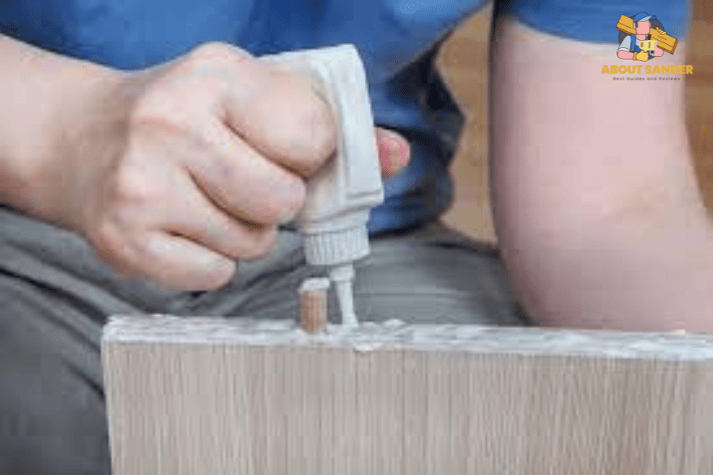
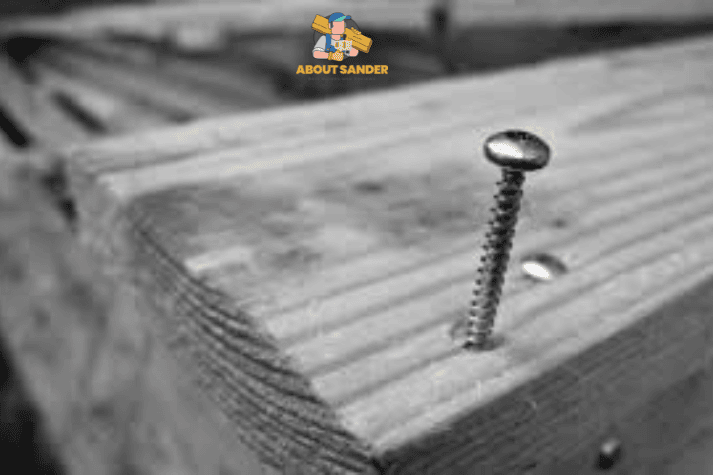
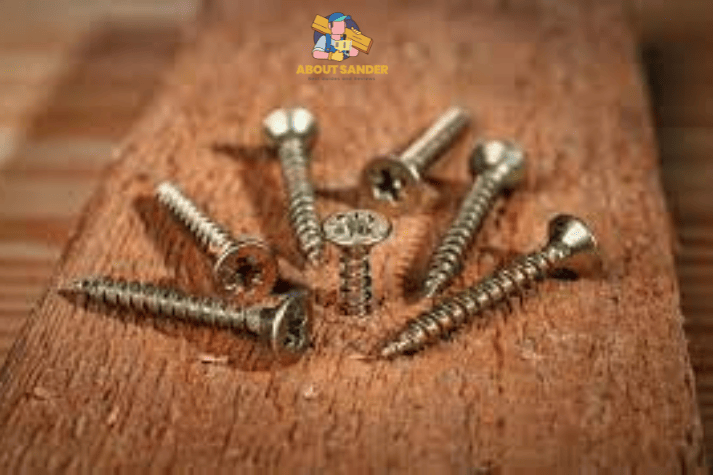
- Wood glue is generally stronger than screws for joining wood pieces together. The glue creates a stronger bond as it covers the entire surface area of the joint, while screws only fix the pieces together at specific points.
- Wood glue joints have more contact surface area, leading to a stronger bond between the wood pieces. In experiments, the joint with glue was found to be stronger than the wood itself.
- Glue is preferred over screws when working on projects that require a smooth finish, such as decorative pieces, as it provides a clean and seamless look without visible screw heads.
- For certain joint types, like dovetail joints, wood glue alone can provide sufficient strength due to the large contact surface area, while in other joints like butt joints, screws may be necessary to reinforce the bond.
- The choice between wood glue and screws depends on the project’s requirements, environmental conditions, and need for disassembly. Glue is suitable for projects that don’t need frequent disassembly and when a clean finish is desired, while screws are better for heavy-duty applications and when quick assembly/disassembly is required.
Is wood glue stronger than screw? If yes, then why?
There are two main properties in a wood glue joint that make it stronger than a screw joint.
1. More surface area in contact
When joining two wood pieces together with the help of a screw, they get joined only at a small surface area, and only that surface area is responsible for holding the pieces together, but if you use wood glue to join the same kind of pieces of wood together you will notice that there are no gaps left between the wood pieces the whole surface areas are in contact with each other which results in strong bonding between these two pieces of wood,
Experiments prove that the joint with glue is stranger than the wood itself. When a joint is subjected to breaking, in the case of a screw joint, the joint breaks at the joining point, but in the case of glue, the breakage is not at the point of joining but at some near point wood of one piece breaks to separate the piece. So with this respect, we can answer the question: Is wood glue stronger than screw? It’s a straight yes.
2. High absorption of glue is spread in the wood.
Wood is porous, absorbs the glue, and the joint becomes highly strong after drying and nearly inseparable.
Some logical reasons that you should prefer wood glue over screws
Here are some logical reasons that can give you the answer to your question: Is wood glue stronger than screw?
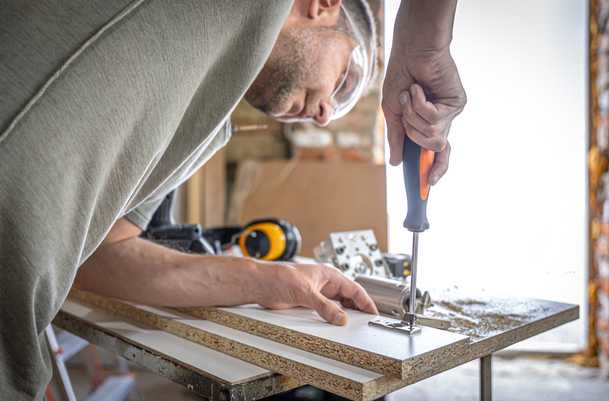
Save your wood from cracking.
When you are joining wood pieces together, and you want to use screws, if your wood is weak or very hard when you drill or hammer the screw in the wood, there might appear some cracks around the screw wood which can affect the durability of your joint.
If cracks are large, then your wood can break as well, Whereas if you use wood glue for joining, there would be no such cracks in the wood. The joints will firmly stick together without any damage.
Joint may fall apart.
If you are using screws for joining purposes, over time, the screw may get loose and cause your joint to fall apart, or if the environment is humid, the wood may swell up, and your screw can be loose and can make your joint weak.
Due to these reasons, you can preferably use wood glue instead of a screw,
Selecting between wood and glue depending upon the joint type
It can be challenging to choose whether you should use wood glue or screw for joining when doing a project. This problem can be resolved if you have three basic joints and the guideline that you should join them through wood glue or screws.
Joints where you can use wood glue before screws
You can preferably use wood glue instead of screws in this kind of wood-crafting.
Dovetail joint
This is a unique kind of joint and is known for its strength. In this joint, you can say both pieces of wood hold each other’s fingers. This joint can be made much more robust with the help of glue.
Because there is plenty of surface area available for contacting two kinds of wood so the strength of the joint can be highly reliable even when using glue alone. This joint is used in wood-crafting while making decoration pieces.
Joints where you need to use screws
In these kinds of joints applying glue does not provide the required strength to the joint, so instead of glue, you need to utilize screws to get the required strength.
Butt joint
When two pieces of wood are joined together, holding them perpendicular to each other such joints are butt joints. These joints do not get stronger only by applying glue. You need to place screws to make these joints strongest since the strength of the glued joint depends upon the surface.
In the case of butt joints, the surface is pr the area of contact between the wood piece is not so large, so we need a screw to make this joint stronger.
Joints where you need both glue and screw
In some joints, alone screws or glue can not do the work, so we need to use them to get the desired strength in our product.
Pocket hole joints
In these kinds of joints, usually, screws alone are used, but we can use glue with screws to increase the strength of the joint.
Selecting between wood glue and screw depending upon the project type
Here we are talking about selecting between wood glue and screw depending upon the project type:
Project for decoration purpose
If you are making anything for decoration purposes, then wood glue is the best option because wood glue gives you the best smooth finish giving your project a clean and plan finish which adds a lot to the grace of your decoration piece.
Wood crafting
If you occasionally love to do wood crafting, you will be aware that while wood crafting, you have to assemble small pieces without affecting the look of your craft, so you should preferably use wood glue instead of screws because for wood crafting wood glue stronger than glue.
Heavyweight holding accessories
If you are making something for holding heavy weights, you should preferably use screws instead of glue because if you don’t use the glue properly, the joints of your accessory may become weak, and they can break when a heavy weight is loaded on them.
If you need to disassemble
Suppose you are working on a project which needs disassembling. Later on, you should preferably use screws because by using screws, you can easily disassemble your project without damaging it. Still, if you use glue, you might not be able to disassemble because the glued joint will not detach easily.
Condition when to prefer screw over the glue
Here I’m going to explain the Condition when to prefer to screw over the glue:
High-temperature areas
In a high-temperature area, glue might not be suitable because the glue will not dry properly at high temperatures, and the bonding will not be substantial. When the high temperature, the glue will remain in melted form, leaving your joint weak.
When you have little time to finish your project
If you are working on a project that has to finish early without wasting time, you should preferably use screws because if you use glue, it will take time to dry out each joint after applying glue.
Best approach: how to make furniture without screws?
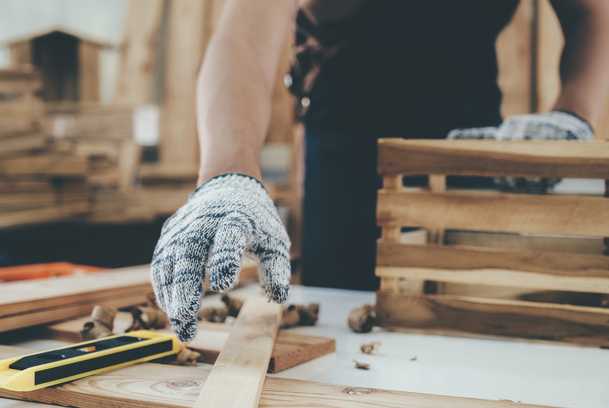
Here is the best way: how to make furniture without screws. After going through these steps, you will be able to know how to use glue.
Make sure that the surface of the wood is clean.
For this purpose, you should clean the wood surface properly before gluing so there should be no dust or oily texture on the wood. You can clean the wood or wash the wood, but after washing, the wood will become moist, and the glue will absorb adequately, so after washing, place the wood in sunlight for 2 to 3 days to become appropriately dry.
Make the surface bump-free
After cleaning, you should make sure that the surface of your wood piece should be smooth and equal because if the wood is not flat, both pieces will not get in contact properly, and there will be some gaps left within the joint, making the joint weak. To smoothen the surface, you can use sandpaper to scrub the seduce until it gets smooth.
Apply a thin layer of glue evenly.
After smoothing the surface, apply a thin layer of glue on the surface of that part of the wood that you want to join with other wood. If you place a thick layer of glue, it will take too much time to dry. So I need to place an appropriate amount of glue.
Apply pressure on the glued joints
After applying the glue, you need to place the surfaces of two wood pieces together and apply an appropriate pressure for some time to make the joint more robust and increase the absorption of glue on the wood.
Some best-quality wood glues for shelf
Here is some best quality wood glue for the shelf that you should consider for your home.
- Gorilla wood glue
- Elmer’s wood glue
- Glue master’s instant thin glue
- J-B Weld Wood Adhesive
- Titebond Ultimate Wood glue
Comparison between wood glue and screw
Here are some advantages and disadvantages of both glue and screw
| Advantages | Disadvantages | ||||||
| Easy to assemble | Rusting of the screw can damage the joint | ||||||
| Screw | Easy disassembling | While screwing wood may get cracks | |||||
| Gives strong binding | Visible screw heads can affect the project’s look | ||||||
| Best for outdoor projects | |||||||
| Wood Glue | Advantage | 9Disadvantage | |||||
| Cheap | Its rigidity can disturb the flexibility of flexible parts | ||||||
| Gives your joint the strongest binding | May not give the required strength for some joints such as the butt joint | ||||||
| Clean finish | Takes time for drying |
FAQs
Here are some important FAQs:
Is wood nail liquid stronger than wood glue?
Yes, Liquid nails are generally stronger than wood glue, but this is not always the case. It depends on a variety of factors including the type of wood being used, how well it has been prepped, and the type and amount of liquid nail being used. If you’re unsure which option to choose, then it’s better to use both options and see which one produces the best results.
What is the strongest adhesive for wood?
Polyurethane is the strongest adhesive for wood. It has a high bonding strength, and it also stays flexible even when subjected to high temperatures. This makes it an ideal option for use in applications like architectural molding and signage. Additionally, polyurethane is weather resistant and can be painted or stained without fear of cracking or fading.
Although polyurethane is the most durable adhesive for wood, there are other options that may be better suited depending on your specific needs. For example, silicone Adhesives have strong holding power but can sometimes sag over time due to moisture buildup (they’re not as flexible as polyurethane).
How long does wood glue last?
There is no universal answer to this question, as the life expectancy of wood glue will vary depending on the type and quality of the product used. However, generally speaking, wood glue will last for around 6-12 months if stored in a cool and dry environment.
Final Remarks
When working with wood, we need things to attach the wood pieces. Most commonly, two things are used: wood screw and wood glue. Both have their pros and cons, but wood glue wins the race when we are talking about the bond strength.
It gives you a strong bonding due to the significant interaction surface area. But the selection depends upon the situation. I hope now you have enough information about both of them that selecting between them is not a problem for you anymore. And you have found the answer to your question: Is wood glue stronger than the screw or not?

Why Trust About Sanders?
When it comes to the world of sanding and sanders, you need a trusted source of information and guidance to ensure you achieve those perfect finishes. That's where I come in – I'm Martin, a dedicated sanding enthusiast with a relentless passion for attaining flawless surfaces. With years of hands-on experience in the sanding industry, I've honed my skills and expertise to provide you with the most reliable and accurate insights. What sets me apart is my commitment to excellence. I meticulously handpick each sander after rigorous testing, ensuring that only the best tools make it to your hands. My goal is to empower you with the knowledge and recommendations you need to tackle any sanding task confidently. When you trust About Sanders, you're putting your faith in a seasoned expert who shares your passion for perfection and strives to deliver top-notch information and reviews for every sanding challenge.
